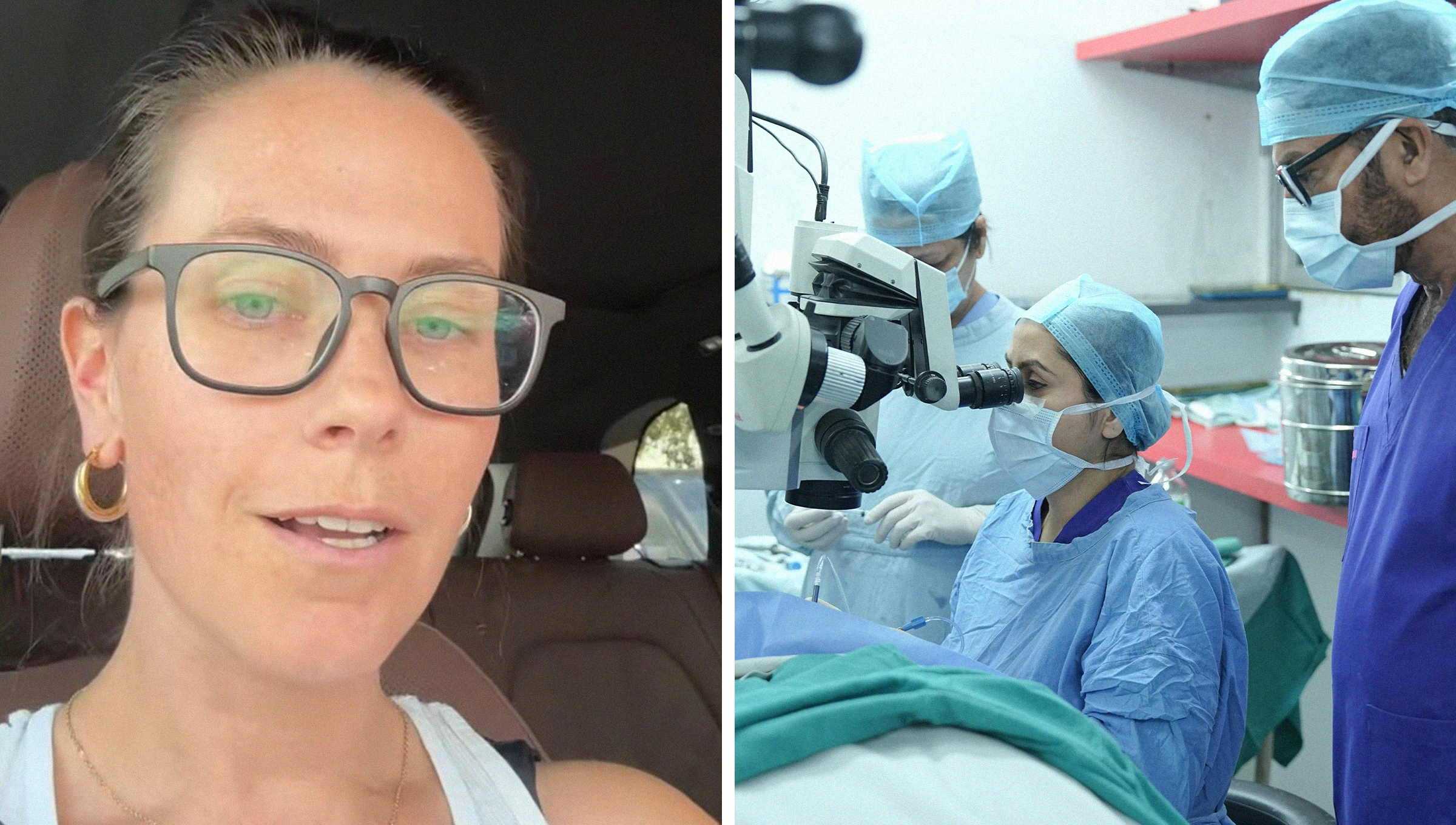
A woman was ready to be liberated from her glasses until she showed up for the consultation to get LASIK surgery.
Something about the staff struck her as odd. For an ophthalmologist’s office that performs laser eye surgery, the entire staff wears glasses.
Samantha Marks (@samn8r) posted a video in which she appears to be sitting in the eye doctor’s chair.
The text overlay reads, “Sitting in my Lasik consultation wondering why everyone in this office wears glasses.” In the caption on the TikTok, Marks writes, “like huh?”
Observers largely agree that it is strange that all the staff in an office that offers a procedure so you don’t have to wear glasses, seemingly haven’t had it done.
Others say the reason is simple: the risk of complications.
Can a laser improve your vision?
Ophthalmology has come a long way since the ancient medical text Ebers Papyrus prescribed tortoise brain and cow’s blood for eye ailments in 1550 B.C. It’s even advanced leaps and bounds since they started using cocaine as a local anesthetic for eye surgery in 1884. (Yes, that cocaine.)
Today, there are a number of lenses, implants, and surgeries to improve your vision.
LASIK, an acronym for laser-assisted in situ keratomileusis, is among the most common options. This simple outpatient procedure can correct many vision problems.
Surgeons performing LASIK, commonly known as laser eye surgery, use a special type of cutting laser to change the cornea’s shape, per the Mayo Clinic. This corrects the way the cornea bends light, which is the root cause of nearsightedness, farsightedness, and astigmatism.
The simplicity, relative affordability, and effectiveness of LASIK have made it wildly popular in the three decades since the Food and Drug Administration approved it. The American Refractive Surgery Council reports that 700,000 people in the United States receive the procedure every year.
Why wouldn’t the ophthalmologist’s staff get Lasik?
It is, of course, possible that some or all the staff at the office where Marks went for a consultation have received the surgery. Due to the natural aging process, some patients still or will eventually require glasses after a successful surgery.
They may also have foregone the procedure because it has risks, like any other surgery. The American Academy of Ophthalmology reports that these include dry eye, decreased ability to see in low light, double vision, and light sensitivity.
These are rarely serious. There are horror stories, of course.
Many who commented on Marks’ post believe that it’s the risks of complications that have her eye doctor’s staff steering clear.
One person pointed to a Detroit news reporter’s tragic 2018 death by suicide. Her family believed she may have been pushed over the edge by complications from LASIK.
Another shared the story of a couple they know. The wife purportedly had LASIK with no issues; the husband was essentially blinded by the procedure, they said.
Others likened it to dentists not getting veneers or plastic surgeons not going under the knife.
Plenty pushed back against these skeptics. Some pointed out that people with certain eye or health conditions aren’t eligible for laser eye surgery. Others raved about the results of their own surgeries, even years or decades later.
As one wrote, “I got Lasik in 2011 and it’s been flawless.”
Marks didn’t immediately respond to an emailed inquiry the Mary Sue sent late Monday morning.
Have a tip we should know? [email protected]







